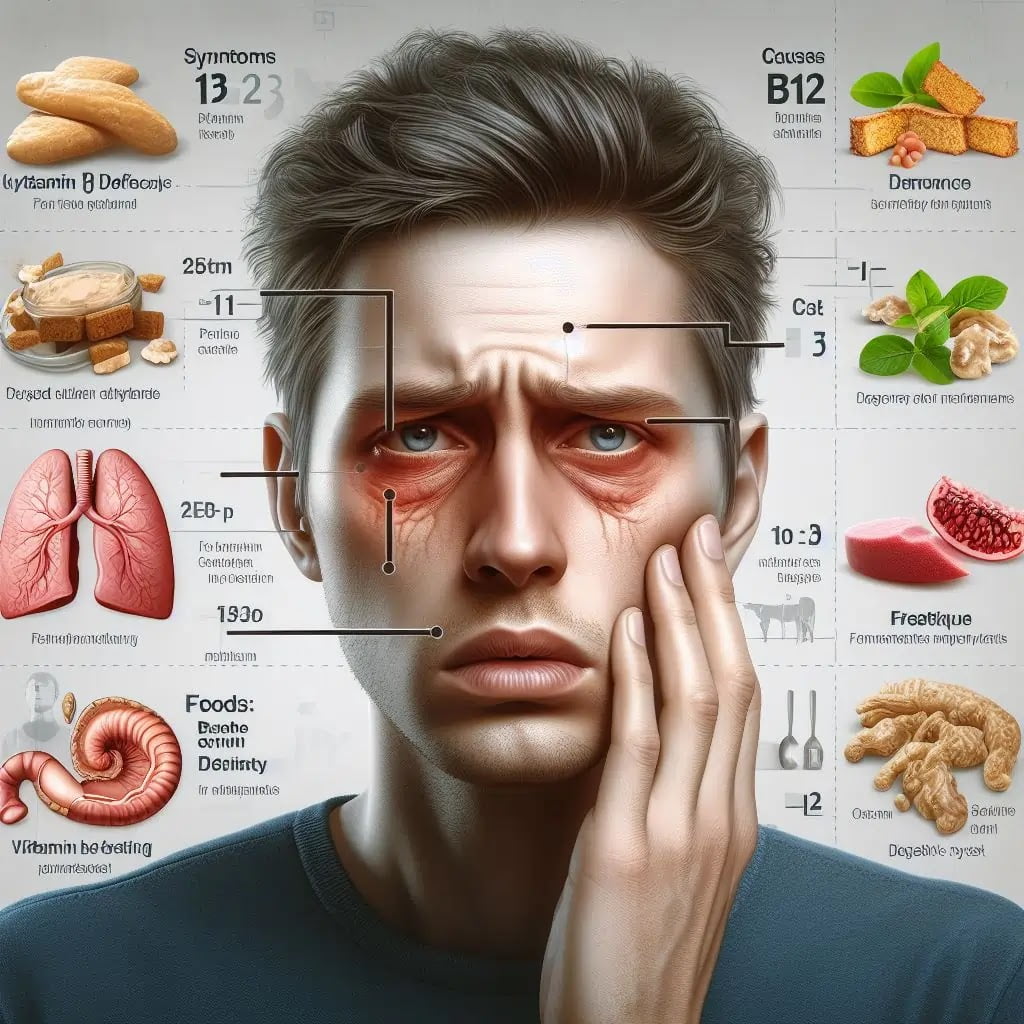Fatty liver is a common condition that affects millions of people worldwide. It occurs when excess fat accumulates in the liver cells, impairing its normal function and causing inflammation. Fatty liver can be caused by various factors, such as obesity, diabetes, alcohol abuse, or poor diet. If left untreated, fatty liver can progress to more serious liver diseases, such as cirrhosis or liver cancer. Therefore, it is important to know how to prevent and reverse fatty liver as soon as possible.
What are the symptoms of fatty liver?
Many people with fatty liver do not have any noticeable symptoms, especially in the early stages. However, some signs that may indicate fatty liver include:
– Weight gain, especially in the abdominal area
– Elevated cholesterol and triglyceride levels
– Fatigue and weakness
– Nausea and indigestion
– Dark circles under the eyes
– Skin problems, such as acne, rashes, or brown spots
– Gallstones
– Headaches
– Overheating of the body
– Immune dysfunction and allergies
– Excessive sweating
– Bad breath and coated tongue
– Red and itchy eyes
If you experience any of these symptoms, you should consult your doctor and get a blood test and an ultrasound to diagnose fatty liver.
How to prevent and reverse fatty liver?
The good news is that fatty liver is reversible, and you can do it naturally and quickly by making some lifestyle changes. Here are some of the most effective ways to prevent and reverse fatty liver:
1. Reduce your alcohol intake
Alcohol is one of the main causes of fatty liver, as it damages the liver cells and increases the production of fat. If you have fatty liver, you should limit your alcohol consumption to one drink or less per day for women, or two drinks or less per day for men. One drink means 12 ounces of beer, 8 ounces of malt liquor, 5 ounces of wine, or 1.5 ounces of distilled spirits. However, if you have an alcohol use disorder or cannot control how much you drink, you should avoid alcohol completely, as any amount can worsen your condition.
2. Eat a healthy diet
Poor diet is another major cause of fatty liver, as it leads to obesity, insulin resistance, and high blood sugar levels. To prevent and reverse fatty liver, you should eat a balanced diet low in carbohydrates, especially refined sugars, and flour, and high in vegetables, fruits, lean proteins, and healthy fats. Some of the foods that you should avoid or limit include:
– Sugar-sweetened beverages, such as soda, juice, or sports drinks
– Packaged sweets, such as candy, cookies, cakes, or pastries
– White bread, pasta, rice, or cereals
– Fried foods, such as french fries, chicken nuggets, or doughnuts
– Processed meats, such as bacon, ham, sausage, or salami
– Fast food, such as burgers, pizza, or tacos
– Margarine, shortening, or hydrogenated oils
Some of the foods that you should eat more of include:
– Leafy greens, such as spinach, kale, or lettuce
– Cruciferous vegetables, such as broccoli, cauliflower, or cabbage
– Colorful fruits, such as berries, apples, or oranges
– Lean meats, such as chicken, turkey, or fish
– Eggs, cheese, or yogurt
– Nuts, seeds, or legumes
– Olive oil, avocado, or coconut oil
A good example of a healthy diet for fatty liver is the Mediterranean diet, which is rich in plant-based foods, fish, olive oil, and moderate amounts of wine. Studies have shown that the Mediterranean diet can help reduce liver fat and inflammation.
3. Exercise regularly
Physical activity is another key factor in preventing and reversing fatty liver, as it helps burn calories, improve insulin sensitivity, and reduce inflammation. Exercise can also boost your mood, energy, and overall health. You should aim for at least 150 minutes of moderate-intensity exercise per week or 75 minutes of vigorous-intensity exercise per week. Some of the best types of exercise for fatty liver include:
– Aerobic exercise, such as walking, jogging, cycling, or swimming
– Resistance training, such as lifting weights, doing push-ups, or using resistance bands
– High-intensity interval training, such as alternating between short bursts of intense activity and longer periods of rest
– Yoga, pilates, or tai chi, which can improve your flexibility, balance, and stress management
You can also incorporate some physical activity into your daily routine, such as taking the stairs instead of the elevator, parking farther away from your destination, or walking during your lunch break.
4. Take supplements
Some natural supplements can also help prevent and reverse fatty liver, by supporting your liver function, reducing oxidative stress, and enhancing your metabolism. However, you should always consult your doctor before taking any supplements, as some of them may interact with your medications or have side effects. Some of the most beneficial supplements for fatty liver include:
– Milk thistle, which is a herb that has anti-inflammatory and antioxidant properties, and can protect the liver from toxins and damage
– Curcumin, which is the active ingredient in turmeric, a spice that has anti-inflammatory and antioxidant properties, and can modulate the expression of genes involved in fatty liver
– Omega-3 fatty acids, which are essential fats that can lower triglyceride levels, reduce inflammation, and improve insulin sensitivity
– Probiotics, which are beneficial bacteria that can improve your gut health, modulate your immune system, and reduce liver fat and inflammation
– Vitamin E, which is a fat-soluble vitamin that has antioxidant and anti-inflammatory properties, and can improve liver function and histology in people with fatty liver
5. Manage your stress
Stress is another factor that can contribute to fatty liver, as it can trigger the release of hormones such as cortisol and adrenaline, increasing blood sugar levels, promoting fat storage, and impairing liver function. Stress can also lead to unhealthy behaviors, such as overeating, drinking, smoking, or sleeping poorly. Therefore, it is important to manage your stress levels and healthily cope with your emotions. Some of the ways to reduce stress and relax include:
– Meditation, which is a practice that involves focusing your attention on your breath, a word, or an object, and letting go of distracting thoughts and feelings
– Breathing exercises, which are techniques that involve inhaling and exhaling deeply and slowly, and can calm your nervous system and lower your blood pressure
– Aromatherapy, which is the use of essential oils, such as lavender, chamomile, or rose, to stimulate your senses and create a soothing atmosphere
– Massage, which is the manipulation of your muscles and tissues, and can relieve tension, pain, and stiffness
– Music, which is the art of combining sounds and rhythms, can evoke positive emotions, memories, and associations
– Hobbies, which are activities that you enjoy and find rewarding, such as reading, writing, painting, gardening, or playing an instrument
Conclusion
Fatty liver is a reversible condition that can be prevented and cured by making some lifestyle changes. By reducing your alcohol intake, eating a healthy diet, exercising regularly, taking supplements, and managing your stress, you can improve your liver health and your overall well-being. Remember to consult your doctor before starting any new regimen, and to monitor your liver function regularly. With some dedication and perseverance, you can achieve your goal of having a healthy and happy liver.
FAQs
– Q: What is fatty liver and what causes it?
– A: A fatty liver is a condition where excess fat accumulates in the liver cells, impairing its normal function and causing inflammation. Fatty liver can be caused by various factors, such as obesity, diabetes, alcohol abuse, or poor diet.
– Q: How can I prevent and reverse fatty liver?
– A: You can prevent and reverse fatty liver by making some lifestyle changes, such as reducing your alcohol intake, eating a healthy diet, exercising regularly, taking supplements, and managing your stress.
– Q: What are the symptoms of fatty liver?
– A: Many people with fatty liver do not have any noticeable symptoms, especially in the early stages. However, some signs that may indicate fatty liver include weight gain, elevated cholesterol and triglyceride levels, fatigue, nausea, dark circles under the eyes, skin problems, gallstones, headaches, overheating of the body, immune dysfunction, excessive sweating, bad breath, and red and itchy eyes.
– Q: How is fatty liver diagnosed?
– A: Fatty liver is diagnosed by a blood test and an ultrasound, which can measure the amount of fat and inflammation in the liver. Sometimes, a liver biopsy may be needed to confirm the diagnosis and assess the severity of the condition.
– Q: Is fatty liver a serious condition?
– A: Fatty liver can be a serious condition if left untreated, as it can progress to more severe liver diseases, such as cirrhosis or liver cancer. Cirrhosis is a condition where the liver tissue is replaced by scar tissue, which can impair liver function and cause complications such as bleeding, infections, or liver failure. Liver cancer is a condition where abnormal cells grow in the liver, which can spread to other parts of the body and be life-threatening.







